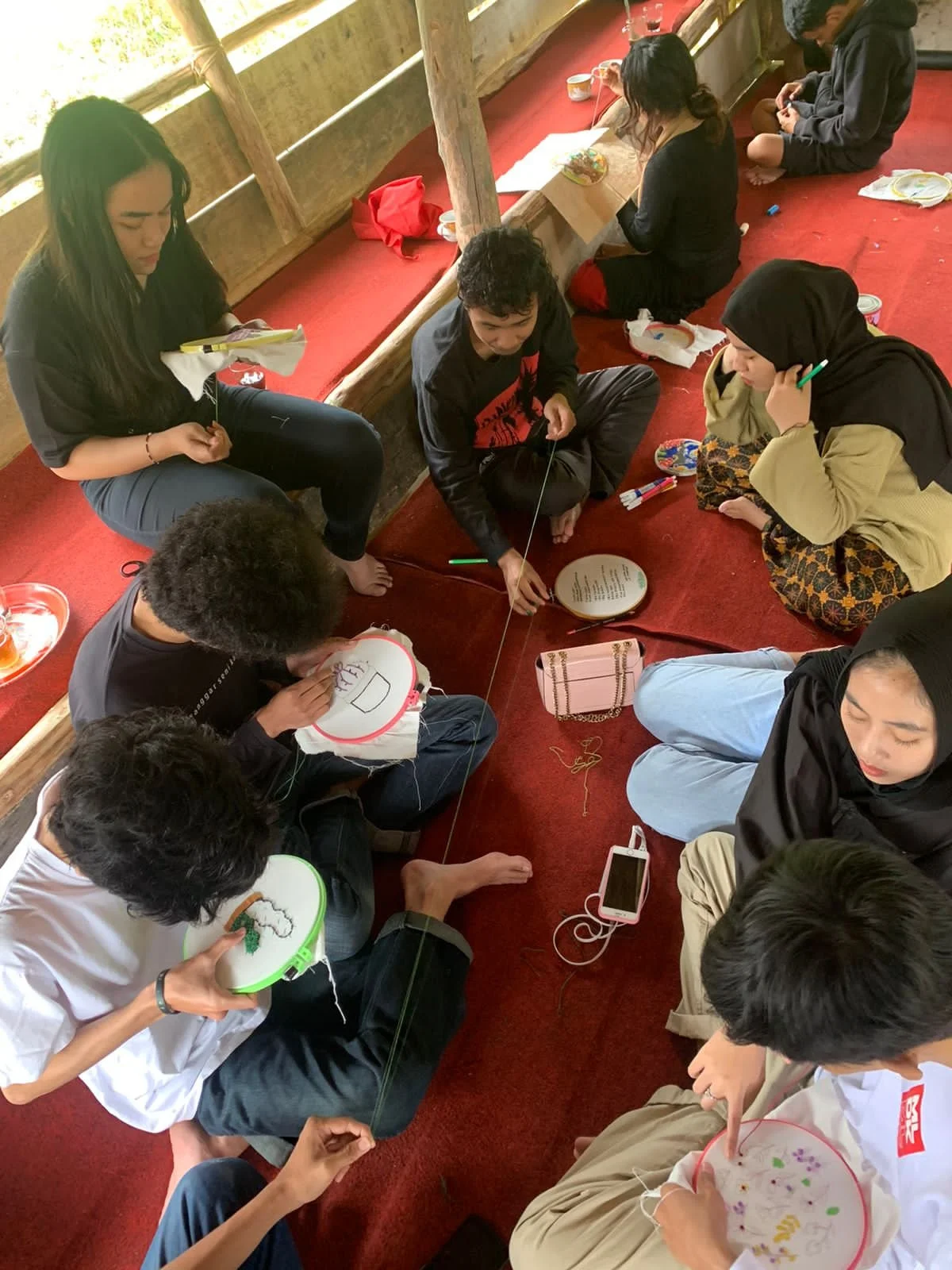Sigi, Central Sulawesi - In ancient times, when there was no fabric for making clothes, the Indigenous Ngata Toro people used the bark of trees to cover their bodies. Up until now, our people still use barkcloth as traditional clothing. Barkcloth is a cultural heritage that must be protected and passed down, so those future generations can still see and enjoy it. For this reason, Ngata Toro Indigenous Women's Organization conducted barkcloth-making training for women and indigenous youth in Ngata Toro, Kulawi District, Sigi Regency, Central Sulawesi.
We began the three-day training on March 25, 2022. Most of the participants were students of our customary school, University students of UNTAD students, and craftswomen. This training is an intergenerational knowledge sharing to spawn a new generation of barkcloth artisans and keep the barkcloth-making tradition alive.
On the first day of the training, we taught the participant the traditional technique of harvesting bark from trees and how to manufacture bark fabric. We introduced types of banyan trees used as raw materials for barkcloth. Besides learning about the tree, we also engaged the indigenous women group and students that attended the training to plant 200 bayan trees near a riverbank. We aim to bring closer the bark material and protect the watershed, which is our main clean water source.
On the second and last day of the training, we coached and guided the participants to embroider the bark fabric. After introducing all the tutors, we grouped the participants into two groups. Each group received white and brown colored bark fabric to embroider. With the tutor's guidance, they practiced sewing the barkcloth. At the end of the training, the participant showcased the beautiful barkcloth that they had made.
Currently, the Ngata Toro Indigenous Women's Organization has empowered four indigenous women sewing groups. We have given each group a sewing machine. Now they can sew barkcloths either manually or using a machine. We wish to empower more women and youth in the future.
Thank you to Ranu Welum Foundation and other donors who generously support this training and our movement in Ngata Toro, Central Sulawesi. - Rukmini & Sumarni Laman

